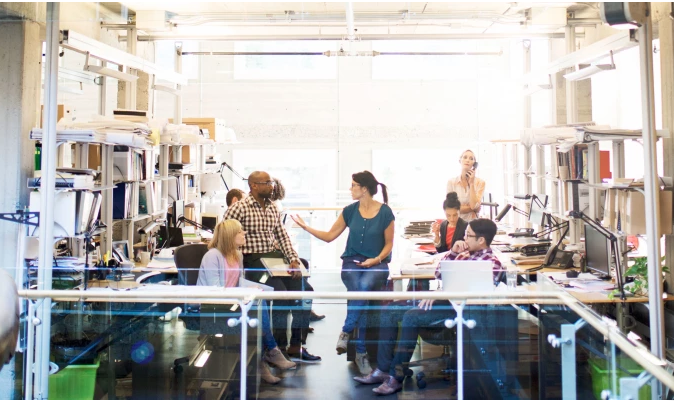(Original Title: These Are The Job Skills Of The Future That Robots Can't Master)
Netease Technology News, July 21st—According to Fastcompany, Paul Roehrig, Chief Strategy Officer at Cognizant Digital Business, a provider of business and technology services, noted that while we live in a digital age, 'soft skills' like communication, problem-solving, cooperation, and empathy are becoming increasingly crucial—perhaps even more so than the technology itself. He remarked: 'In this era of powerful and widespread technology, human skills are growing in importance. It might seem counterintuitive, but to outperform robots, you need to be more human.'"

The CareerBuilder survey indicates that 62% of employers consider "soft skills" highly significant when evaluating candidates for 2017 recruitment plans. However, a recent Wall Street Journal poll found that 89% of executives face challenges in finding individuals with these traits. Some attribute this difficulty to an over-reliance on technology and a focus on STEM fields (science, technology, engineering, and mathematics). Yet Roy Rigg, co-author of *What to Do When Machines Do Everything: How to Get Ahead in a World of AI, Algorithms, Bots, and Big Data*, argues that these skills haven't vanished—they're just more critical now. Roylege explained: 'As machines handle more routine and low-value work, we need humans to focus on what automation and AI cannot achieve.'
If you've neglected "soft skills," it's time to reassess your workplace strategy. A University of Michigan study reveals that teaching employees "soft skills" boosts productivity and retention by 12%, yielding a 256% return on investment. To foster these skills, your company should consider adjustments in these four areas:
1. Evaluate Corporate Culture
Linda Sharkey, author of *Future-Proof Workplace: Six Strategies to Accelerate Talent Development, Reshape Your Culture, and Proceed with Purpose*, emphasized that while technical training is beneficial, embedding "soft skills" into the work environment is most effective. She stated: 'Incorporate desired behaviors into your organizational culture. If collaboration is a core value, employees will naturally adopt it since it's modeled by others.' For instance, Menlo Innovations, a custom software developer, pairs employees on projects, fostering teamwork and encouraging them to step outside their comfort zones.
2. Reward Employees Exhibiting "Soft Skills"
Sharkey advised reinforcing the values embraced by promoted employees, encouraging curiosity-driven behaviors, and supporting relationship-building between staff and management. She explained: 'Leaders should act as coaches and mentors. People need to collaborate with colleagues in a professional manner.' Roylege also stressed incorporating "human-centered" behaviors into performance evaluations. He added: 'Acknowledge behaviors you value, such as creativity, curiosity, or analytical thinking.'
3. Foster Diversity in the Workforce
Hiring employees with varied perspectives and backgrounds can enhance empathy. Matthew Gonnering, CEO of Widen, a digital asset management firm, achieved this by employing individuals with developmental disabilities, such as Down syndrome and cerebral palsy. He noted: 'Empathy sharpens self-awareness. By viewing the world through someone else’s lens, we can identify blind spots in our own perspectives. Essentially, empathy enables us to bridge hard and soft skills. While we can code new products, empathy prompts us to ask: For whom? And why?'
Glenarin highlighted that Widen's disabled employees contribute beyond their roles. He said: 'Their passion spreads positivity and highlights details others overlook. For example, Andrew, who manages the office plants and popcorn service, frequently shares his experiences coaching athletes at the Special Olympics.' Glenn explained: 'Andrew’s expertise in gardening inspires us to reflect on empathy and motivates us to strive for excellence, fostering solutions that reduce stress.'
4. Establish Mentorship Programs
Tim Elmore, president of Growth Leaders, a leadership training and development organization, proposed pairing new hires lacking certain "soft skills" with seasoned mentors. He remarked: 'Mentorship provides young workers the chance to engage openly with experienced professionals in a relaxed setting. Starting with seemingly minor aspects of soft skills can yield significant benefits.' For example, creating a positive first impression is straightforward, but sustaining it requires social intelligence—a skill often lacking among younger professionals. Elmore suggested weekly meetings with influential career veterans to discuss topics related to social intelligence, such as social cognition. He recommended making trainees mentors themselves, stating: 'This structured approach fosters respect and integration, helping young employees feel valued.'
Sharkey concluded: 'If you permit disrespect among employees, your corporate culture risks becoming toxic. Companies often post mission statements on walls, but do they truly uphold them? If profitability is the sole priority, unethical practices will ultimately harm your reputation, losing customers, talent, and goodwill.'
Oblique Single Axis Solar Tracker System
Oblique Single Axis Solar Tracker System,Oblique Single Axis Solar Tracker System Customized,oblique single axis solar tracker system device
Hebei Jinbiao Construction Materials Tech Corp., Ltd. , https://www.pvcarportsystem.com
